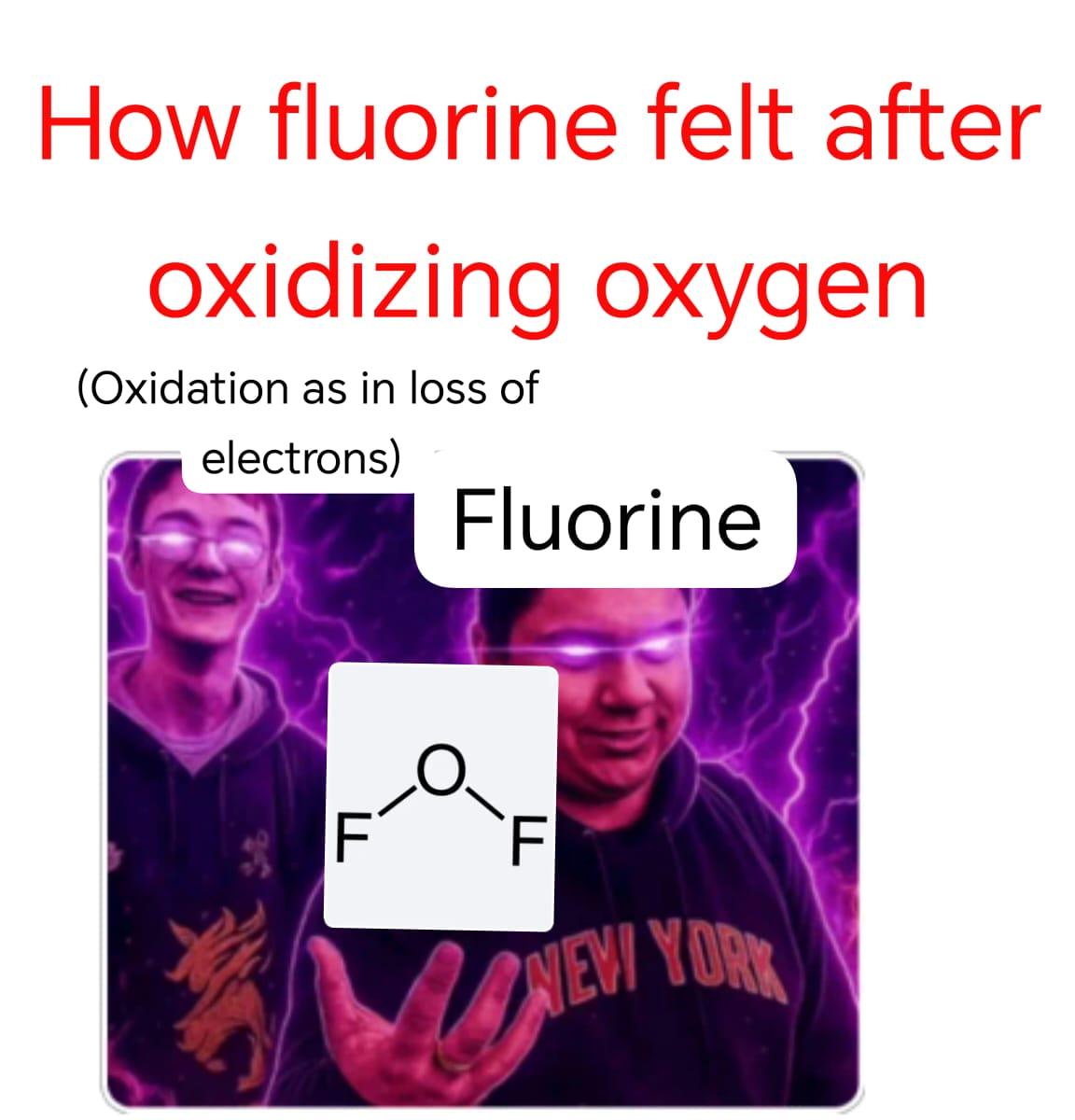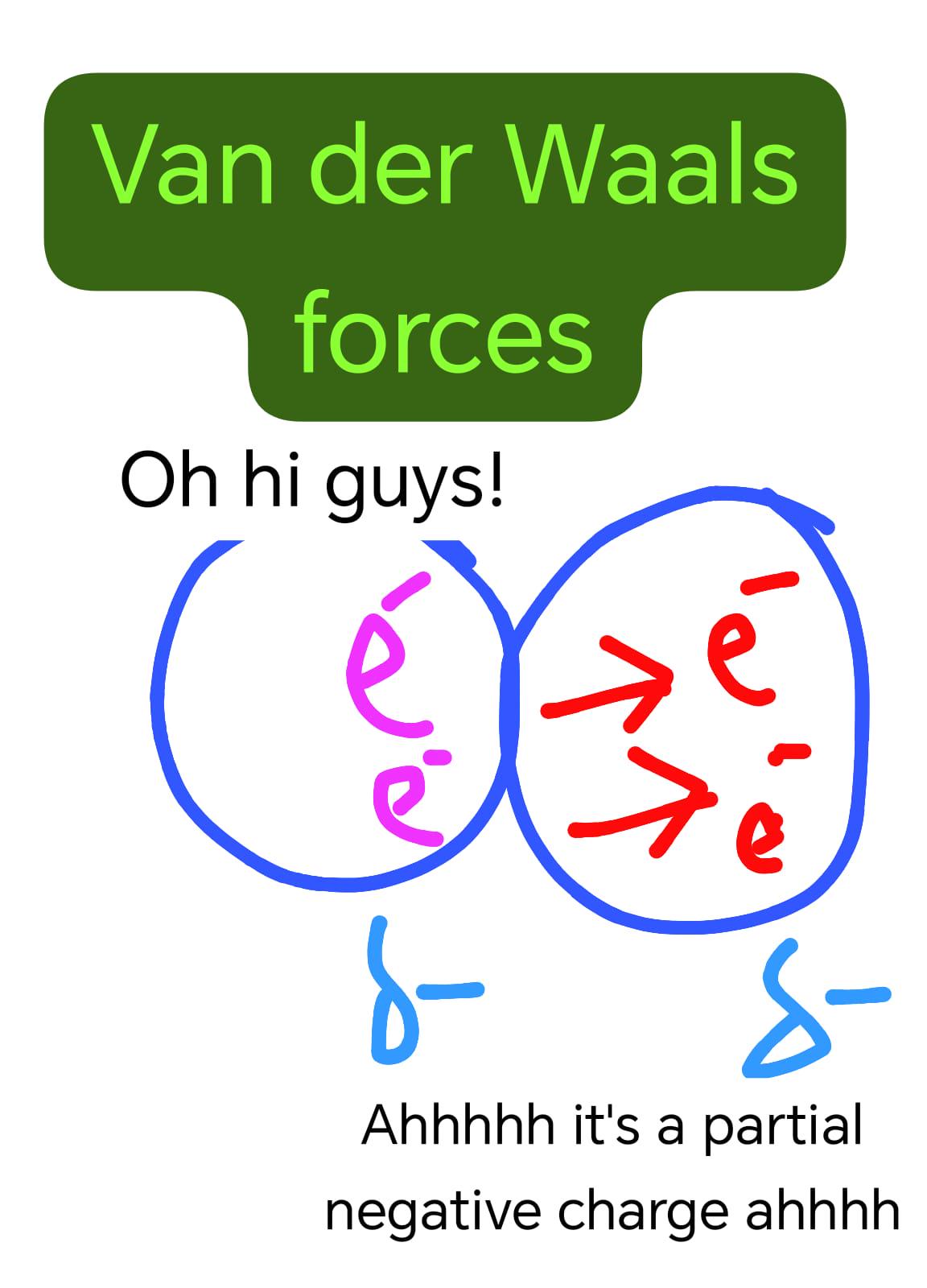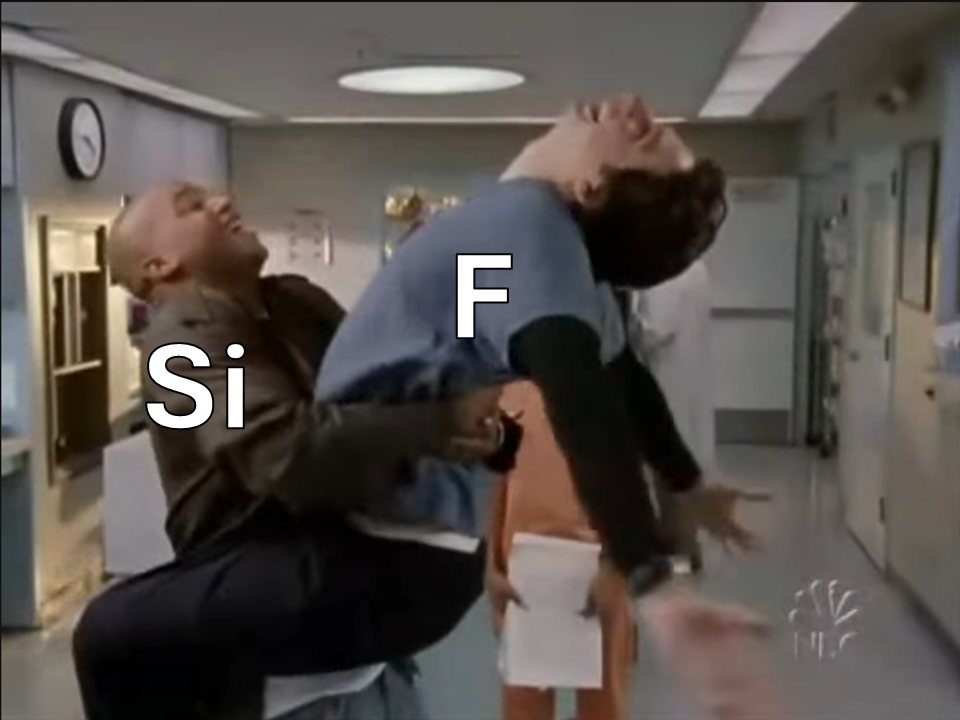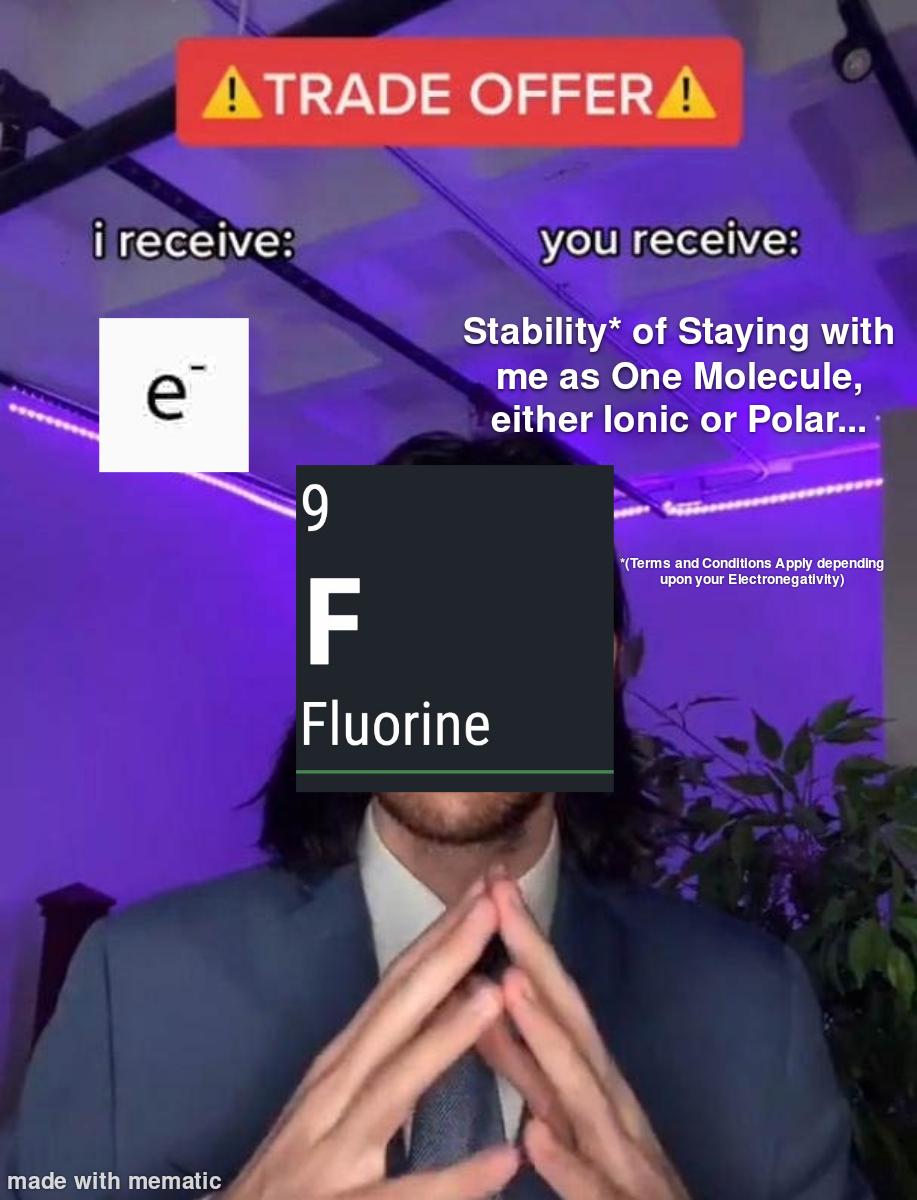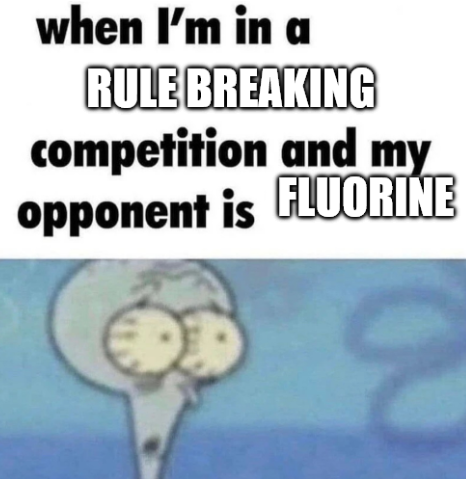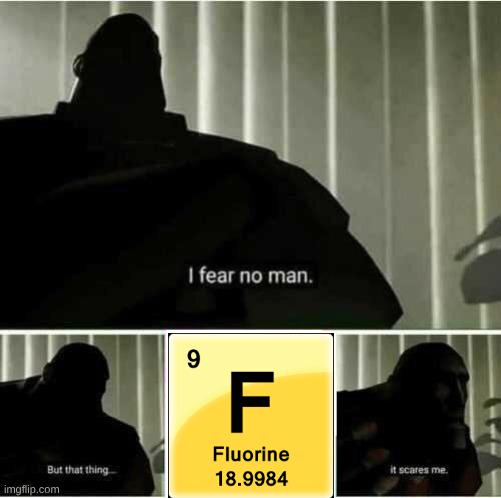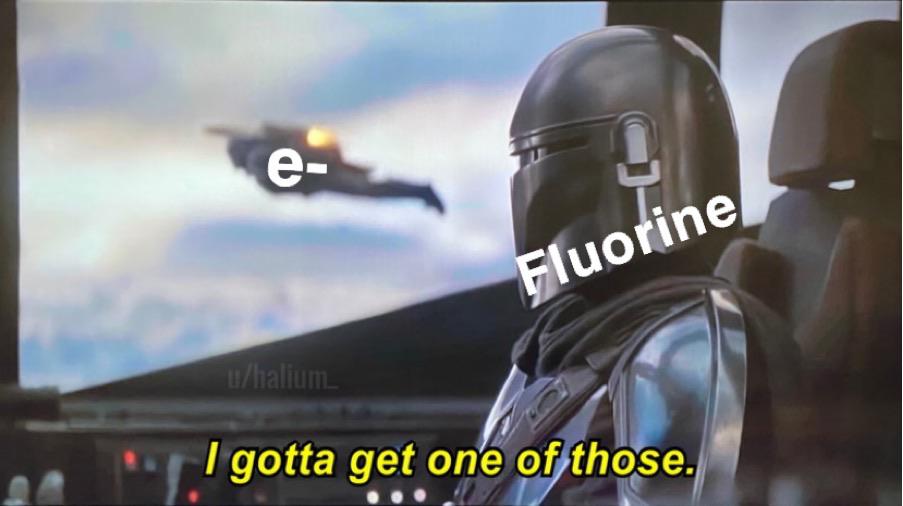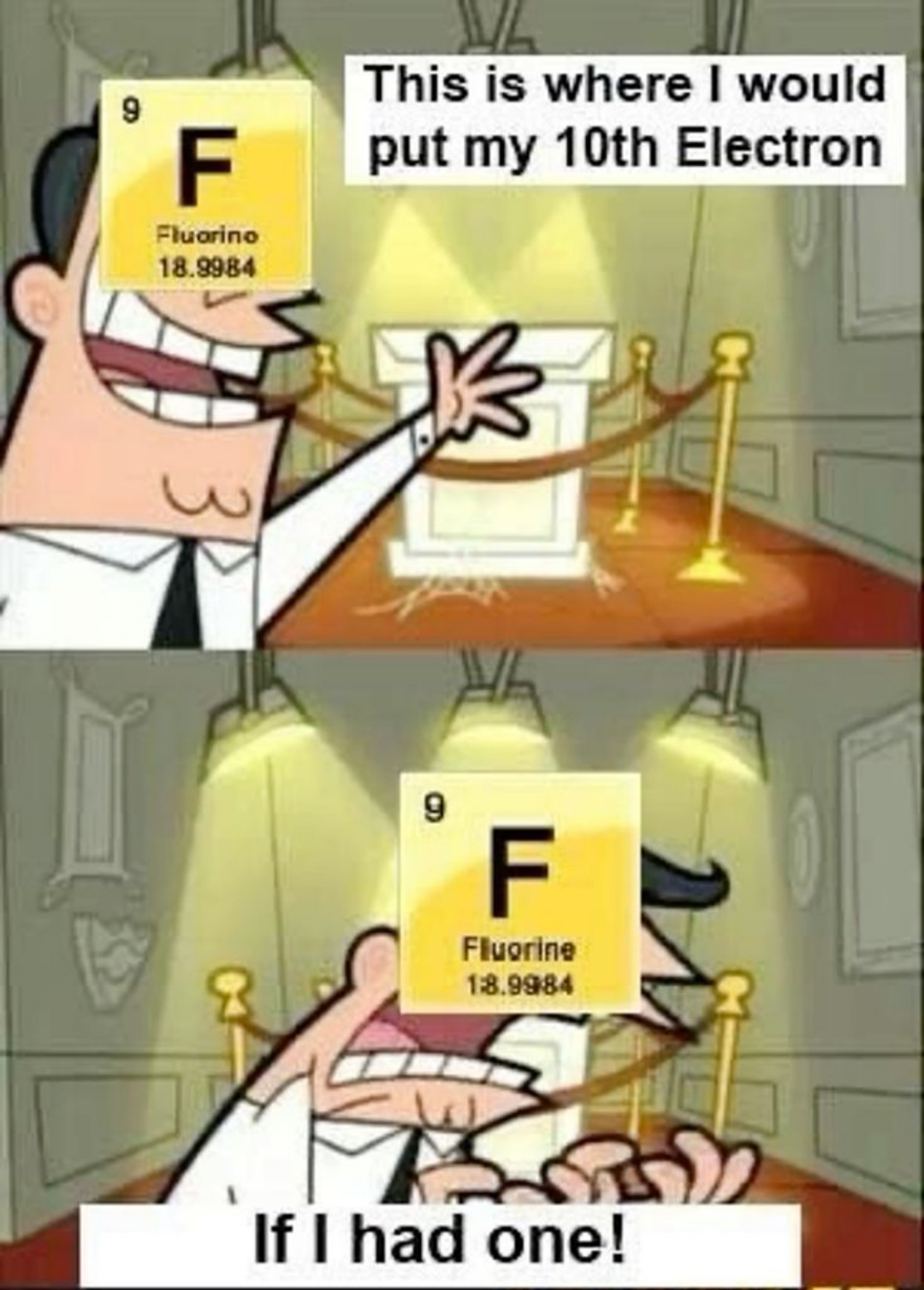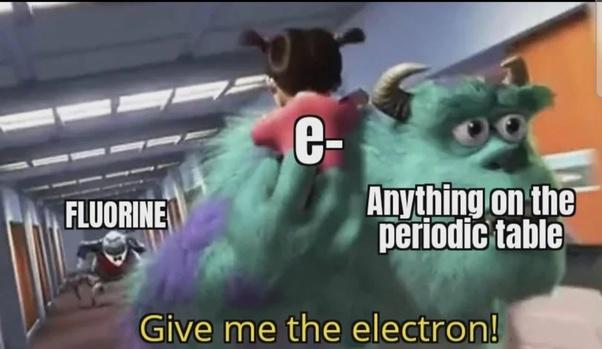The ultimate atomic heist caught on camera! Chlorine, that electron-hungry bully of the periodic table, snatching sodium's only valence electron like it's stealing candy from a baby. This is basically the chemical equivalent of a mugging in a dark alley. Sodium's just trying to live its metallic life with its single outer electron, and chlorine swoops in with its seven valence electrons thinking "I need just ONE MORE to complete my octet." Next thing you know, sodium's positively charged and chlorine's negatively charged, and boom—they're stuck together in an ionic relationship called table salt. Chemistry: where atoms don't share electrons fairly, they just take what they want and call it a "bond."


 Academia
Academia
 Ai
Ai
 Astronomy
Astronomy
 Biology
Biology
 Chemistry
Chemistry
 Climate
Climate
 Conspiracy
Conspiracy
 Earth-science
Earth-science
 Engineering
Engineering
 Evolution
Evolution
 Geology
Geology
